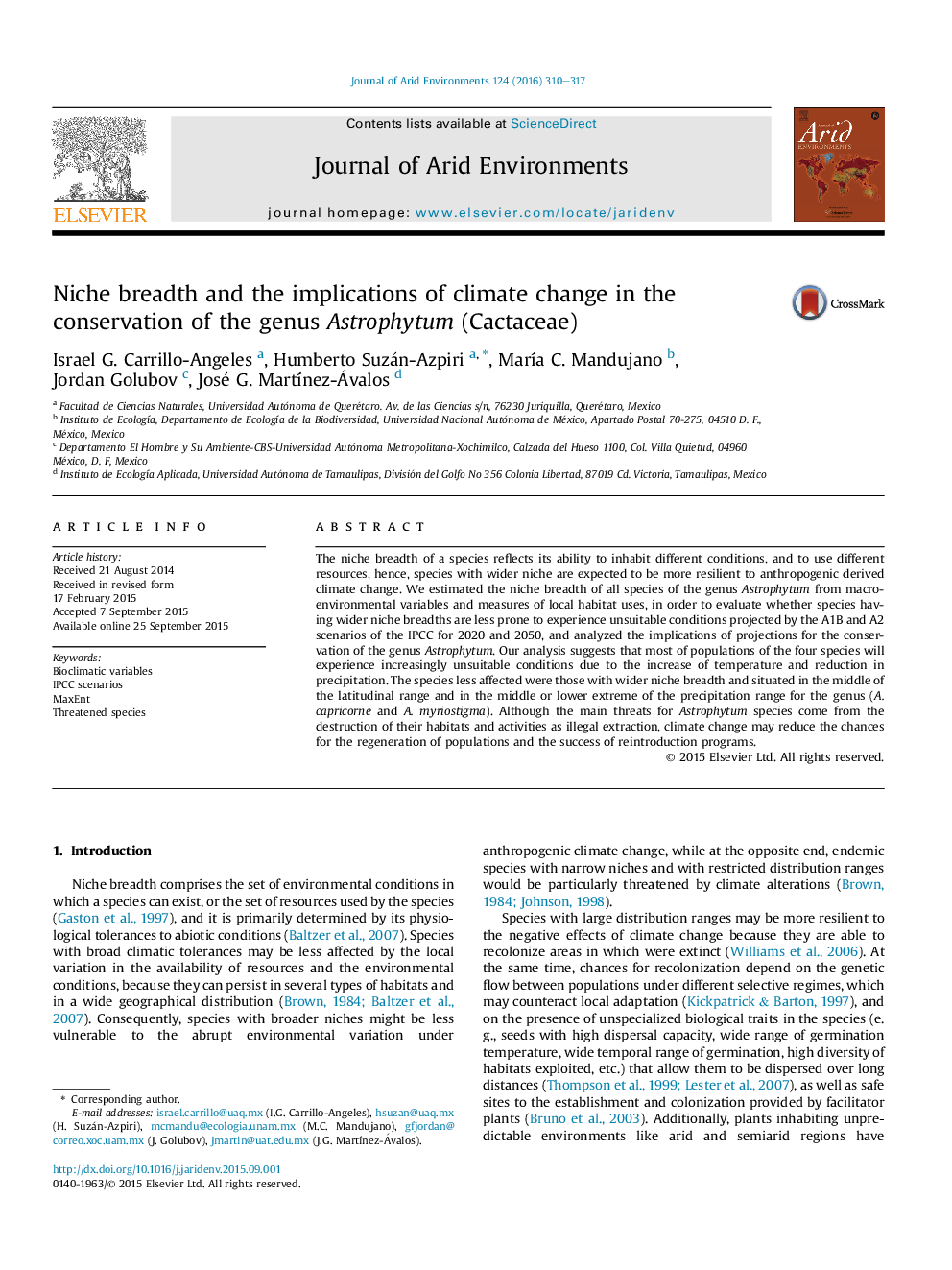| Article ID | Journal | Published Year | Pages | File Type |
|---|---|---|---|---|
| 6303314 | Journal of Arid Environments | 2016 | 8 Pages |
â¢We explored the climate change effect on suitable conditions for the genera.â¢We analyzed implications of niche breadth in the vulnerability of species.â¢Most of populations could experiment unsuitable environmental conditions.â¢More abundant species with wider niche breadths are less affected.â¢Climate change threat the natural regeneration and success of conservation programs.
The niche breadth of a species reflects its ability to inhabit different conditions, and to use different resources, hence, species with wider niche are expected to be more resilient to anthropogenic derived climate change. We estimated the niche breadth of all species of the genus Astrophytum from macro-environmental variables and measures of local habitat uses, in order to evaluate whether species having wider niche breadths are less prone to experience unsuitable conditions projected by the A1B and A2 scenarios of the IPCC for 2020 and 2050, and analyzed the implications of projections for the conservation of the genus Astrophytum. Our analysis suggests that most of populations of the four species will experience increasingly unsuitable conditions due to the increase of temperature and reduction in precipitation. The species less affected were those with wider niche breadth and situated in the middle of the latitudinal range and in the middle or lower extreme of the precipitation range for the genus (A. capricorne and A. myriostigma). Although the main threats for Astrophytum species come from the destruction of their habitats and activities as illegal extraction, climate change may reduce the chances for the regeneration of populations and the success of reintroduction programs.
